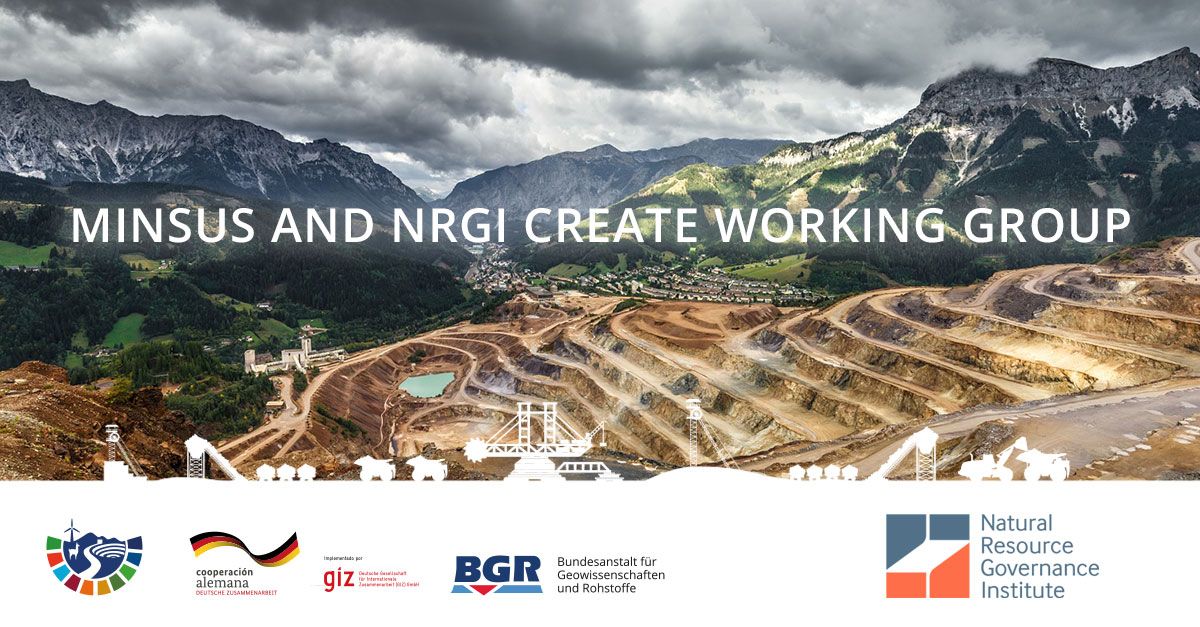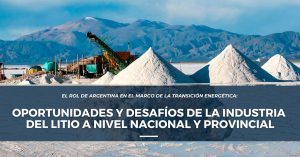
This initiative seeks to introduce and familiarize stakeholders in the Andean region with the relevant certification schemes operating along mineral supply chains, as well as determine what mine-level information could be made available to ensure that these certifications support transparency objectives and access to information for local stakeholders.
Friday, April 23, 2021
As we move towards a more sustainable economy, which hinges on the energy transition and the fight against climate change, the demand for minerals will increase. This scenario is accompanied by greater public awareness of the environmental and social impacts, and human rights violations by companies. As a result, there is increased pressure on companies to comply with high operating standards and to hold their supply chains accountable. In Germany and Europe supply chain laws are being drafted and multiple voluntary sustainability initiatives have sprung up. This is also the case for the mining sector where several certification schemes at the mine site level are evolving, such as the Assurance and Validation Process of the International Council for Mining and Metals (ICMM), The Certification of Raw Materials (CERA), The Copper Mark, The Initiative for Responsible Mining Assurance (IRMA), or Towards Sustainable Mining.
The Working Group “A fresh look at access to information: What do international mineral certification schemes have to offer?” chaired by the Natural Resource Governance Institute (NRGI) and the MinSus Program, which is implemented by the Deutsche Gesellschaft für Internationale Zusammenarbeit (GIZ) and the Federal Institute for Geosciences and Natural Resources (BGR) on behalf of the Federal Ministry for Economic Cooperation and Development (BMZ), aims to introduce and familiarize stakeholders in the Andean region with the relevant certification schemes operating along mining supply chains, and to determine what mine-level information could be made available to ensure that these certifications support local stakeholders’ transparency and access to information objectives.
Work methodology
The Group is composed of regional experts, civil society representatives and academics, including the General Director for Latin America of INSUCO, Guillen Calvo; the Vice President of the Peruvian organization Derecho, Ambiente y Recursos Naturales (DAR), Vanessa Cueto; the Deputy Director of CooperAcción (Peru), César Flores; the Colombian and regional expert, Ana Carolina González; the Peruvian expert Luis Miguel Inchaustegui; the Coordinator of the Foro Nacional por Colombia, Juliana Peña; the analyst of the Jubileo Foundation (Bolivia), Sandra Sánchez; the Director for Business and Human Rights of the Ideas para la Paz Foundation (Colombia), Nataly Sarmiento; the researcher of Terram Foundation (Chile), Telye Yurisch; Jhonatan Jaramillo and Mauricio Winkelried of Solidaridad; and the Coordinator of the Department of Communication and Information Management of CEDLA (Bolivia), Alfredo Zaconeta.
The Working Group sessions include dialogues among participants with input from external experts on key issues related to access to information and transparency of environmental, social and governance information generated by selected mining certifications. Progress of the work will be reported periodically via the MinSus website. The outcome document will provide recommendations on how mineral certification schemes can be designed to be of greater use to stakeholders impacted by mining activities at the local level. The draft recommendations will be shared and discussed with selected certification schemes to identify and prioritize requests for information transparency. The final recommendations will be published during the first quarter of 2022.

 Contact us
Contact us Newsletter
Newsletter Courses
Courses

